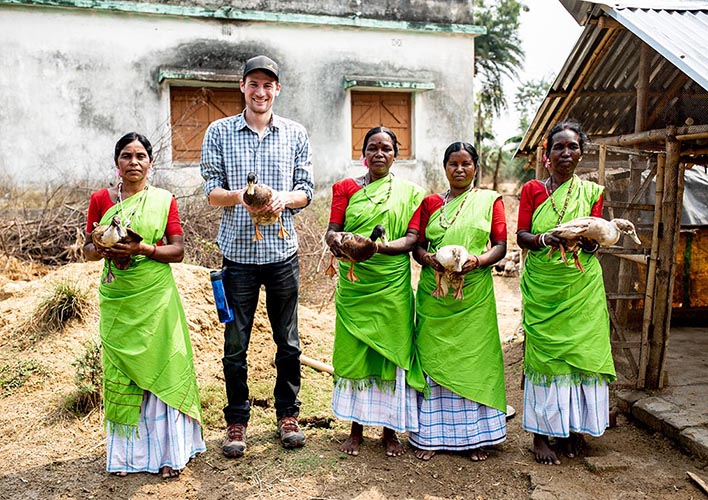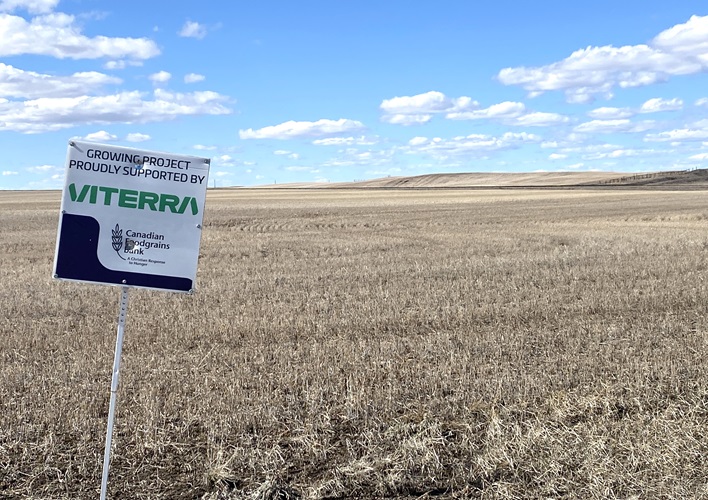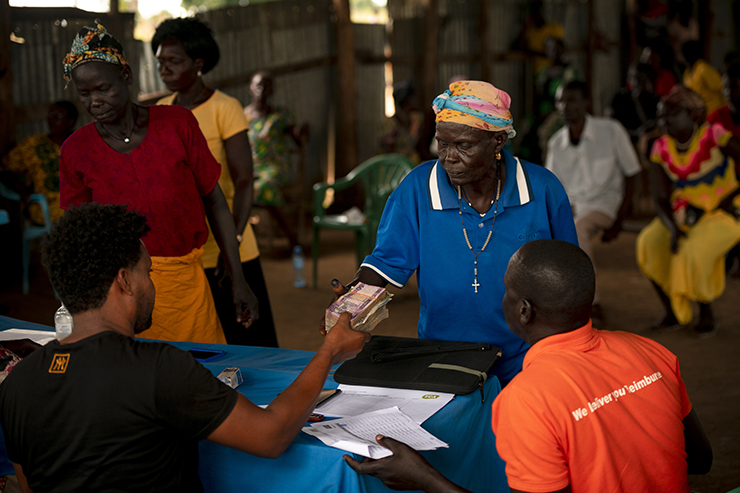Colin Boender with a group of women he met in India who participated in a project of Foodgrains Bank member Mennonite Central Committee Canada. The women are part of a collective that owns ducks to generate more income to feed their families. (Photo: Will Bergmann)
Learning about food security for small-scale farmers
My wife always says, “Can we please talk about anything other than farming?” To which I always reply, “What else is there?”
Needless to say I was in my element as I met farmers in India while running my hands through their mustard and lentils. We sat in their homes and asked about their crops and their farming methods, and also their families in the same way neighbours do at my house.
Colin Boender participated in a learning tour to India with the Foodgrains Bank earlier this year. He farms with his wife in Leduc, Alberta. Together they support efforts to end hunger through the Leduc and District growing project.
While much was different between us, I was struck by the similarities. These farmers want to farm the best they can, just like I do. They want to provide for their families, ensure their children are healthy and send them to school. The difference is that they haven’t had the same opportunities as me. I can’t help but be reminded of what Jesus said: “To whom much has been given, much is required.”
Thankfully, we saw firsthand how these farmers can achieve their goals through the work of Foodgrains Bank members and their partners. They are learning about seed spacing, weed control and compost to get higher yields. They are given seeds to grow a larger variety of food and plant gardens to provide fresh vegetables for their families year-round. They are also learning about better hygiene to improve their health and well-being.
While there are likely ups and downs in the work being done, money donated to the Foodgrains Bank is money well spent. Because of donors, the Indian families we met were able to improve their futures and lead more stable, healthy and active lives.
Reflecting on our trip during the pandemic
The world we returned home to was much different than the one we left, due to COVID-19. Many of you have likely gone to a grocery store and found the shelves bare. We are in a prosperous country with strong food supply chains. I think this absolutely solidifies the need for increased food security for the people we met in India and others around the world.
Though many of us are facing difficulties, we are generally able to find what we need to survive. If you can’t grow food because you had to flee your home, if you don’t have multiple grocery stores to find what you want, or if you don’t even have cash to buy the things you need, how would you survive?
The next time my wife asks me if we can talk about anything other than farming, I think I’ll tell her yes—we can talk about how we can support people just like us who are struggling on the other side of the world. The funny thing is—now, more than ever—the answer lies in food and farming!
– Colin Boender farms with his wife in Leduc, Alberta




